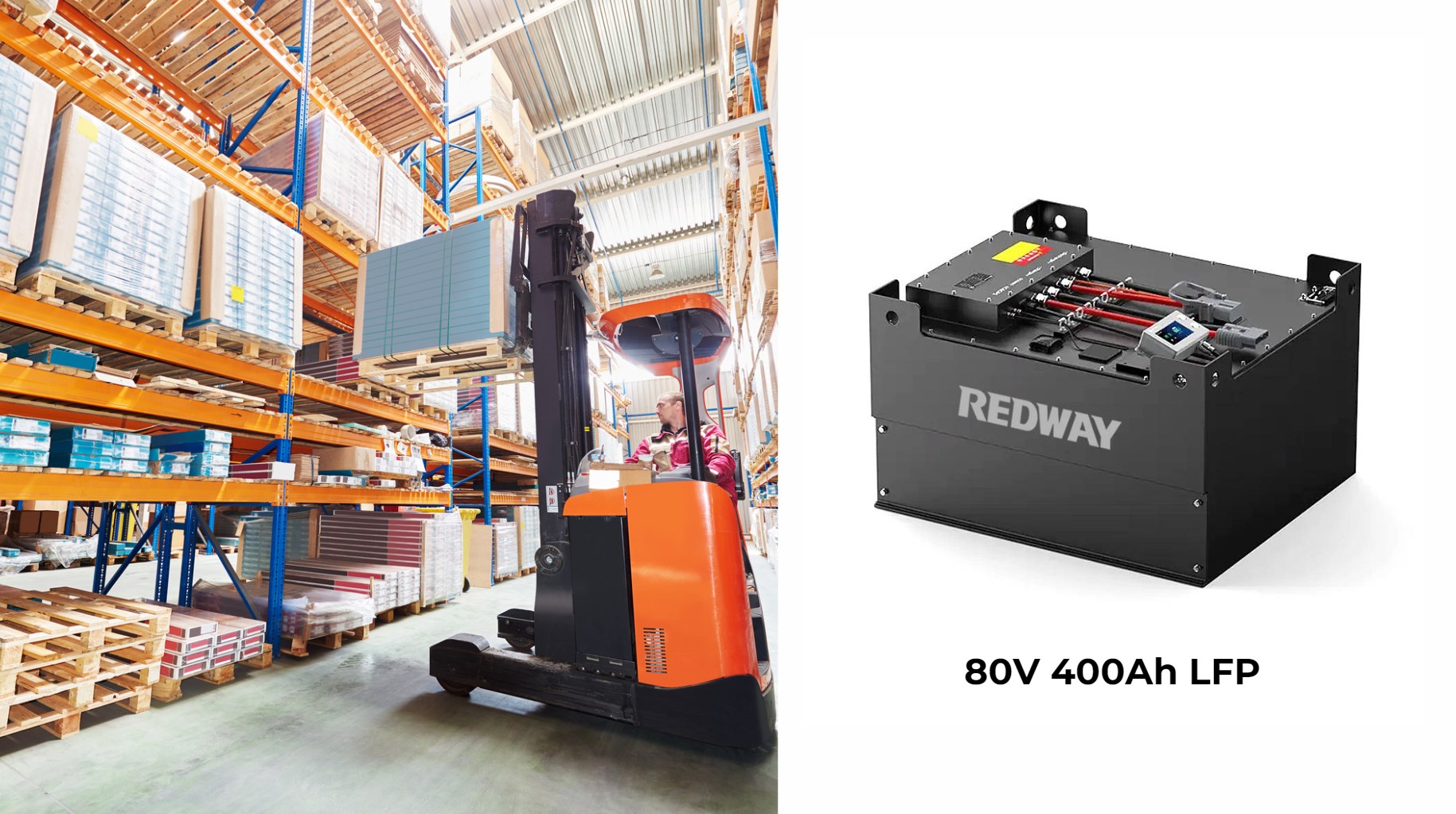LiFePO4 batteries provide forklifts with longer lifespan, faster and opportunity charging, reduced maintenance, consistent power delivery, and higher energy efficiency. They also enhance safety and sustainability compared to traditional lead-acid batteries. Redway Battery’s LiFePO4 solutions help reduce total cost of ownership, maximize operational uptime, and deliver reliable performance across demanding material handling operations.
How Do LiFePO4 Batteries Offer a Longer Lifespan for Forklifts?
LiFePO4 batteries can last over 2,000–4,000 charge cycles, often double or triple the life of lead-acid batteries. This extended lifespan reduces replacement frequency and maintenance costs, making them ideal for high-demand warehouse or industrial operations.
Lifespan Comparison Chart
Wholesale lithium golf cart batteries with 10-year life? Check here.
| Battery Type | Typical Lifespan (Cycles) | Replacement Frequency |
|---|---|---|
| Lead-Acid | 1,000–1,500 | Frequent |
| TPPL | 1,500–2,000 | Moderate |
| LiFePO4 | 2,500–4,000 | Rare |
What Makes LiFePO4 Batteries Faster and Suitable for Opportunity Charging?
LiFePO4 batteries can charge rapidly without damage, allowing forklifts to recharge during short breaks. Unlike lead-acid batteries, they don’t experience the memory effect, ensuring full capacity is maintained and operational downtime is minimized. Redway Battery LiFePO4 packs excel in high-frequency opportunity charging.
How Do LiFePO4 Batteries Reduce Maintenance Needs?
LiFePO4 batteries are fully sealed and maintenance-free. Unlike flooded lead-acid batteries, they require no watering, no equalization, and minimal terminal cleaning. This reduces labor costs, eliminates handling risks, and contributes to safer warehouse environments.
Want OEM lithium forklift batteries at wholesale prices? Check here.
Why Are LiFePO4 Batteries Considered Safer Than Lead-Acid?
LiFePO4 chemistry is inherently stable, with a low risk of overheating, thermal runaway, or fire. They emit no harmful gases, eliminating the need for specialized ventilation systems. This safety profile ensures compliance with industrial safety standards and improves worker protection.
How Do LiFePO4 Batteries Provide Consistent Power Throughout a Shift?
These batteries maintain a stable voltage across their discharge cycle, allowing forklifts to perform consistently from start to finish. Operators experience reliable speed, lifting capacity, and smooth performance, preventing mid-shift power drops that could disrupt operations.
What Makes LiFePO4 Batteries More Energy-Efficient?
LiFePO4 batteries convert a higher percentage of input energy into usable power. With efficiency rates often above 95%, energy consumption is reduced, lowering electricity costs and carbon footprint. Redway Battery LiFePO4 units integrate advanced BMS technology to optimize charging and energy efficiency.
Energy Efficiency Chart
| Battery Type | Efficiency (%) | Energy Lost per Cycle |
|---|---|---|
| Lead-Acid | 75–85 | Moderate |
| TPPL | 85–90 | Low |
| LiFePO4 | 95–98 | Minimal |
How Do LiFePO4 Batteries Contribute to Environmental Sustainability?
They are free from harmful heavy metals, produce no acid fumes, and are fully recyclable at end-of-life. This reduces warehouse emissions and aligns with corporate sustainability initiatives, offering a greener alternative to traditional battery technologies.
How Do LiFePO4 Batteries Lower Total Cost of Ownership?
Although the upfront cost is higher, the combination of longer lifespan, reduced maintenance, energy efficiency, and minimal downtime results in lower lifetime operating costs. Organizations realize savings on replacement batteries, electricity, labor, and operational interruptions.
Redway Battery Expert Views
“LiFePO4 batteries transform forklift operations by combining safety, longevity, and efficiency in one package. Redway Battery’s advanced packs provide warehouses with faster charging, lower maintenance, and consistent power, leading to reduced operational costs and improved productivity across high-demand environments.” — Redway Battery expert
Conclusion
LiFePO4 batteries are a superior choice for forklift fleets seeking longer lifespan, faster charging, reduced maintenance, and higher efficiency. Redway Battery LiFePO4 solutions deliver safety, sustainability, and consistent performance, making them an excellent investment for industrial and warehouse operations aiming to optimize productivity and reduce total cost of ownership.
FAQs
Are LiFePO4 batteries maintenance-free?
Yes, they are fully sealed and require no watering or equalization.
Can LiFePO4 batteries charge during short breaks?
Yes, they support fast and opportunity charging without capacity loss.
Do LiFePO4 batteries improve forklift performance?
Yes, they maintain stable voltage and power output throughout the shift.
Are LiFePO4 batteries safer than lead-acid batteries?
Yes, LiFePO4 chemistry is stable, emits no harmful gases, and reduces fire risk.
Does Redway Battery offer LiFePO4 forklift solutions?
Yes, Redway Battery provides advanced, maintenance-free LiFePO4 forklift batteries optimized for efficiency and safety.






